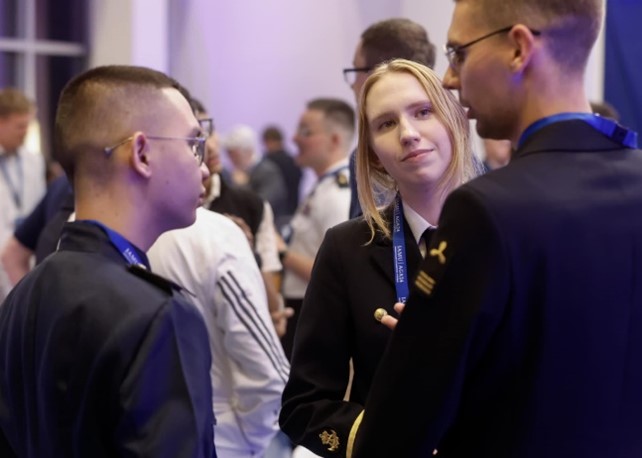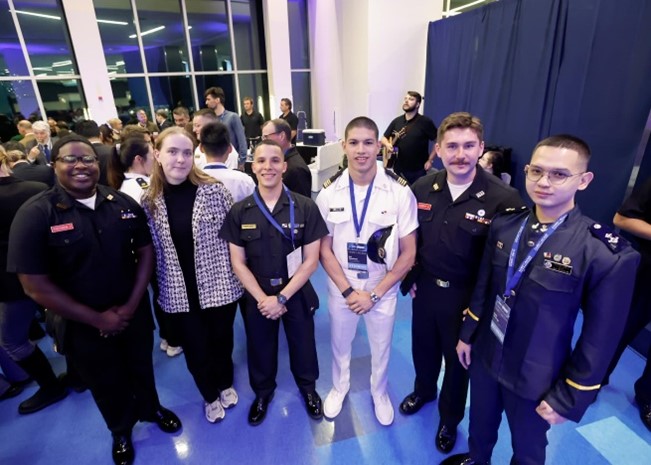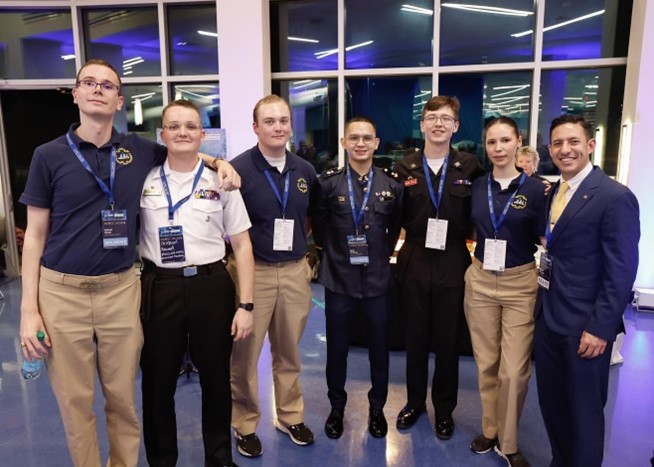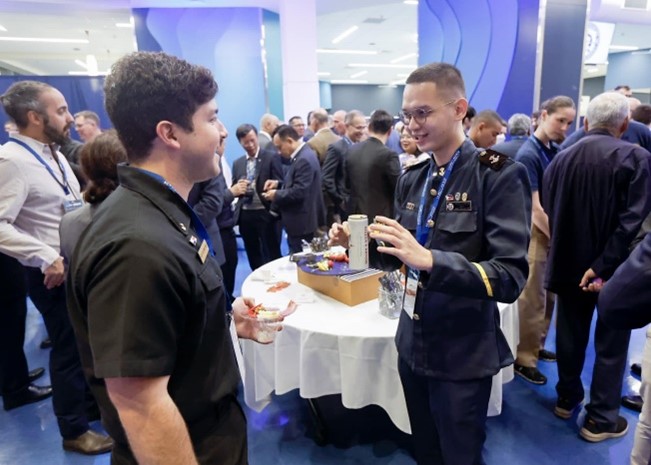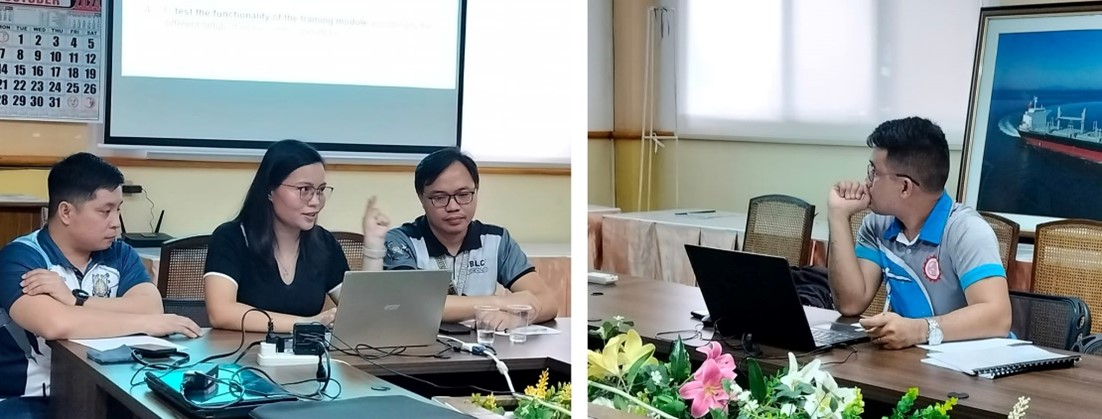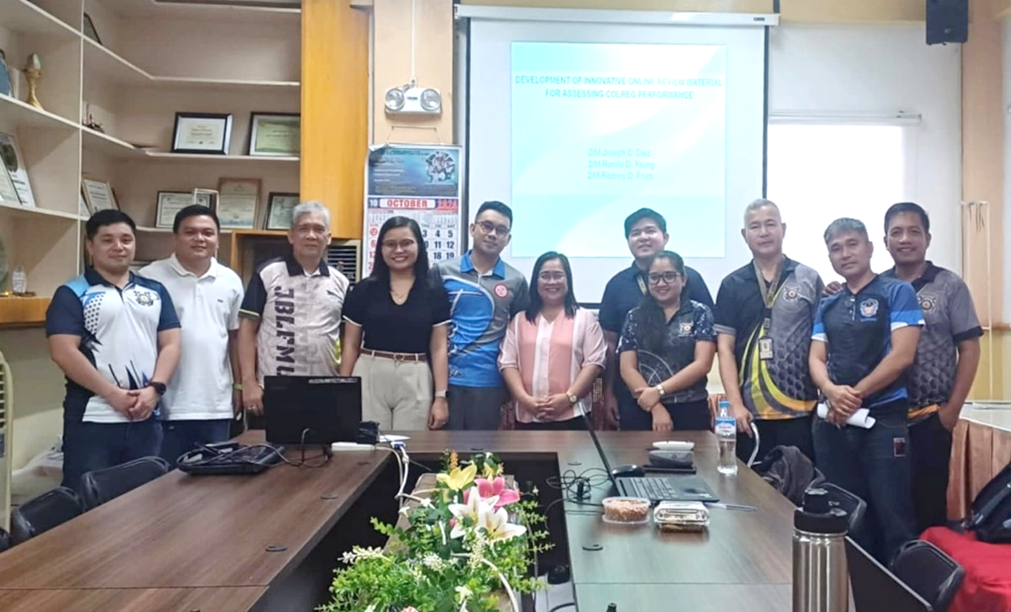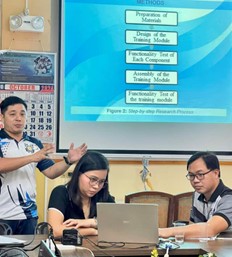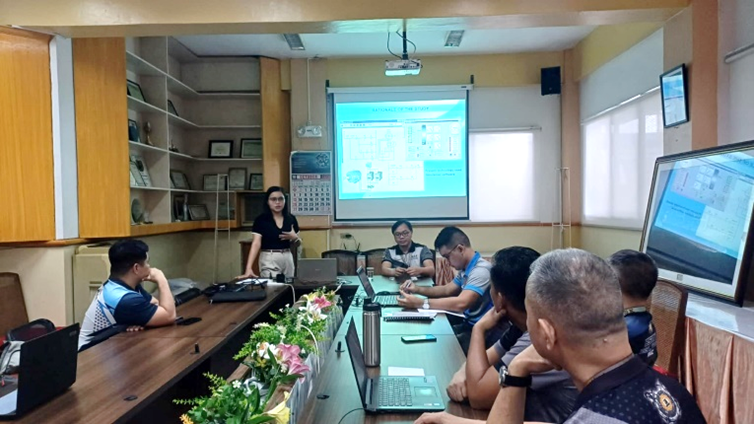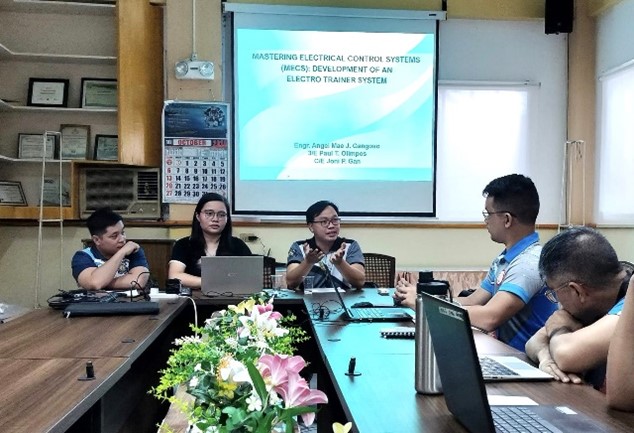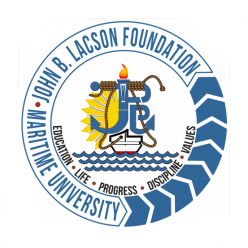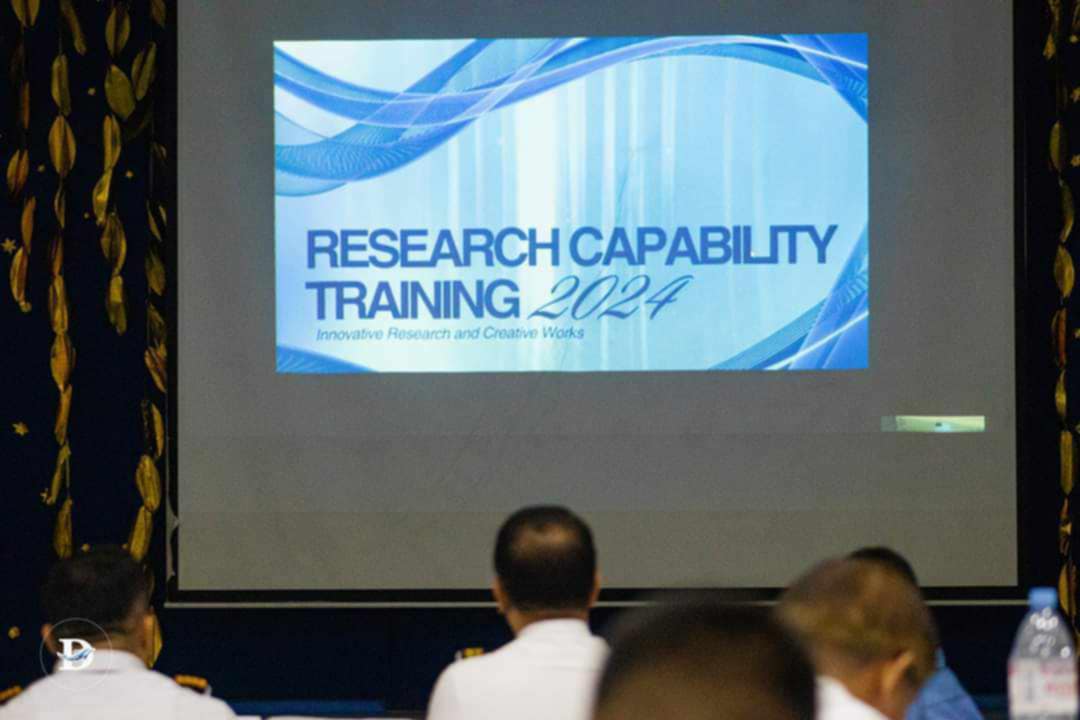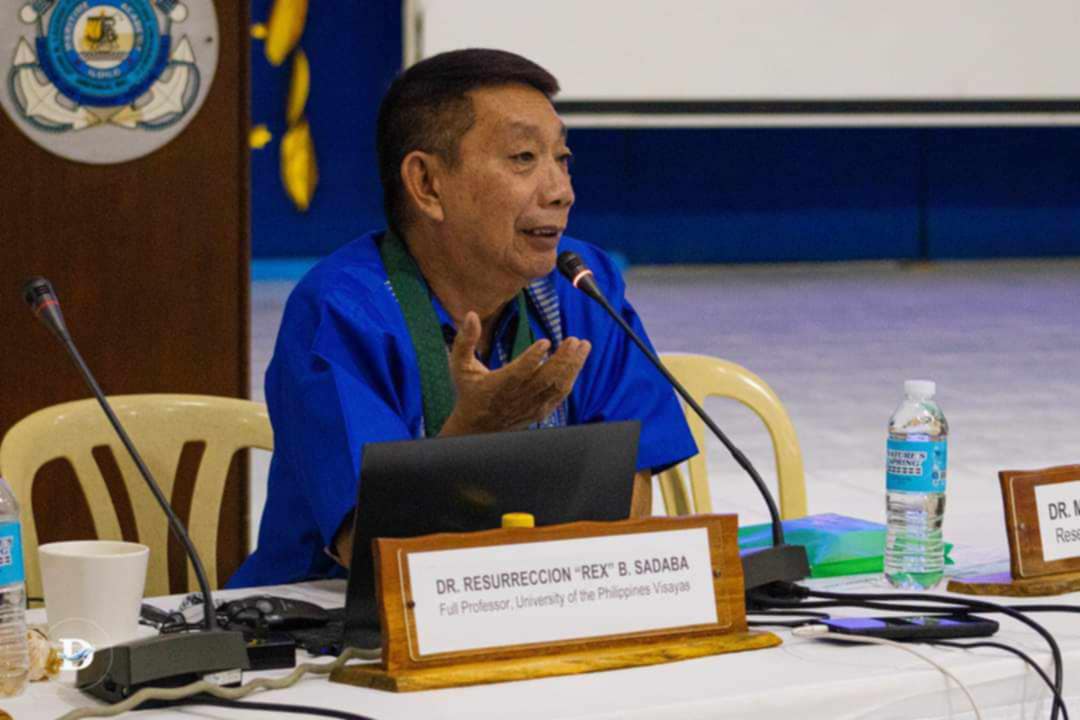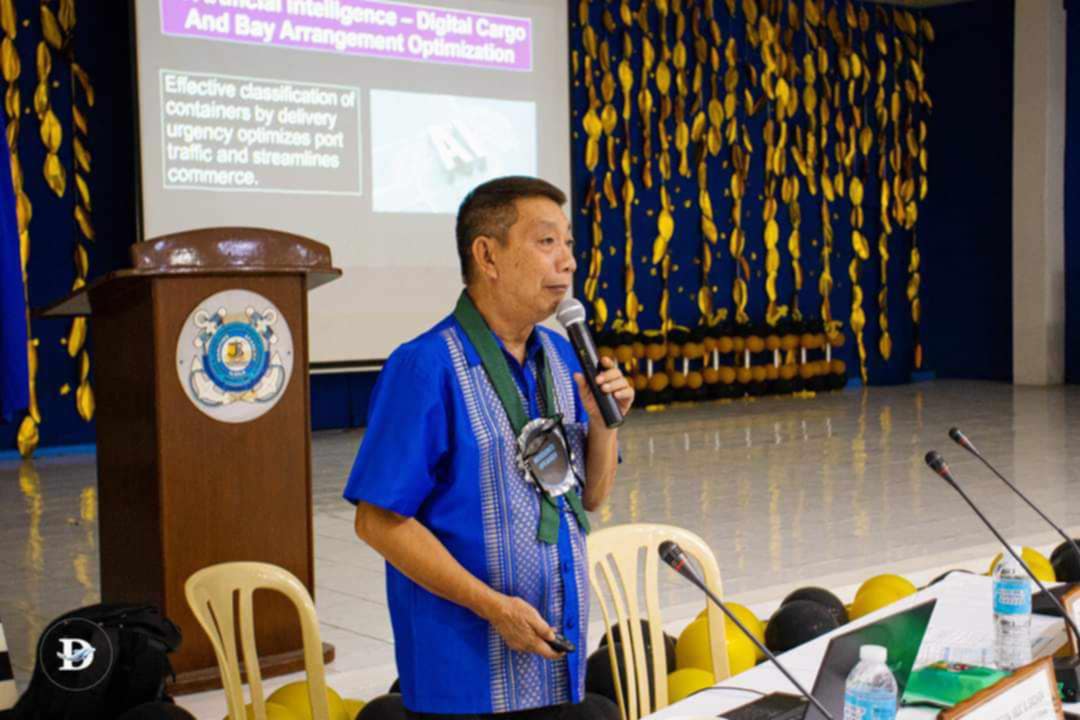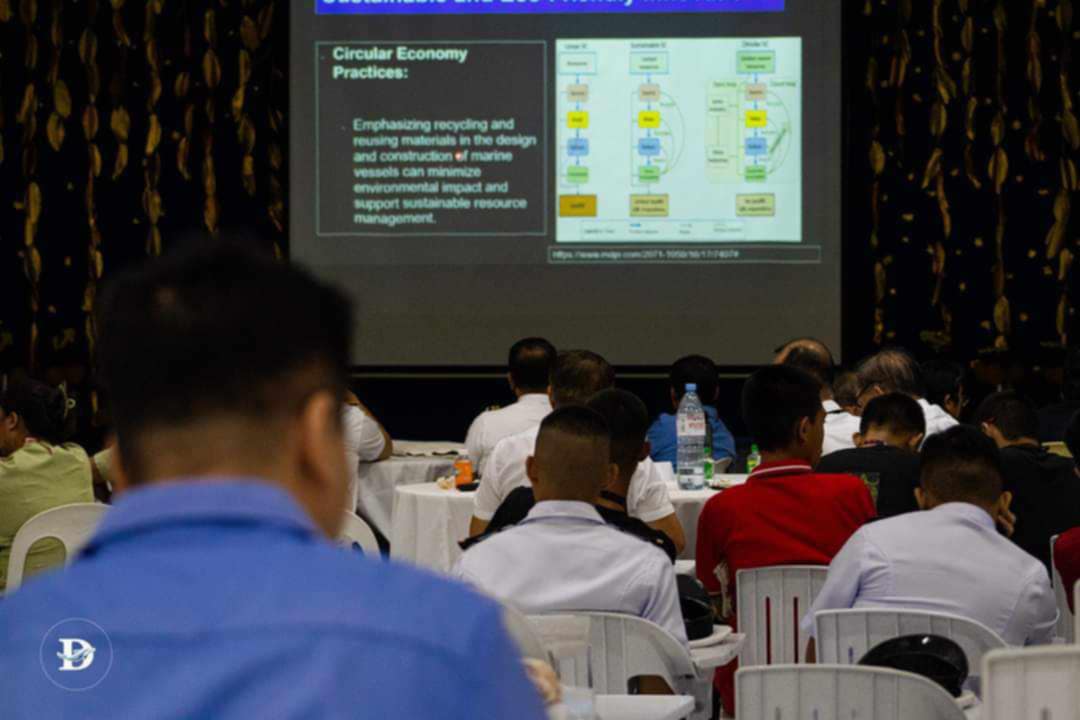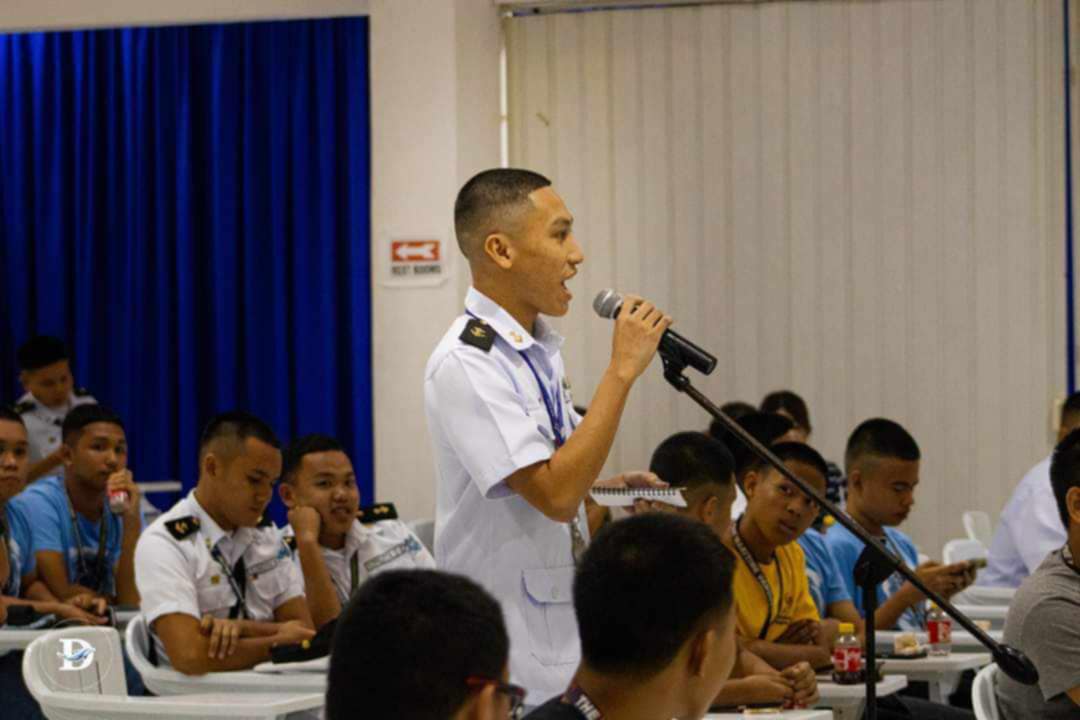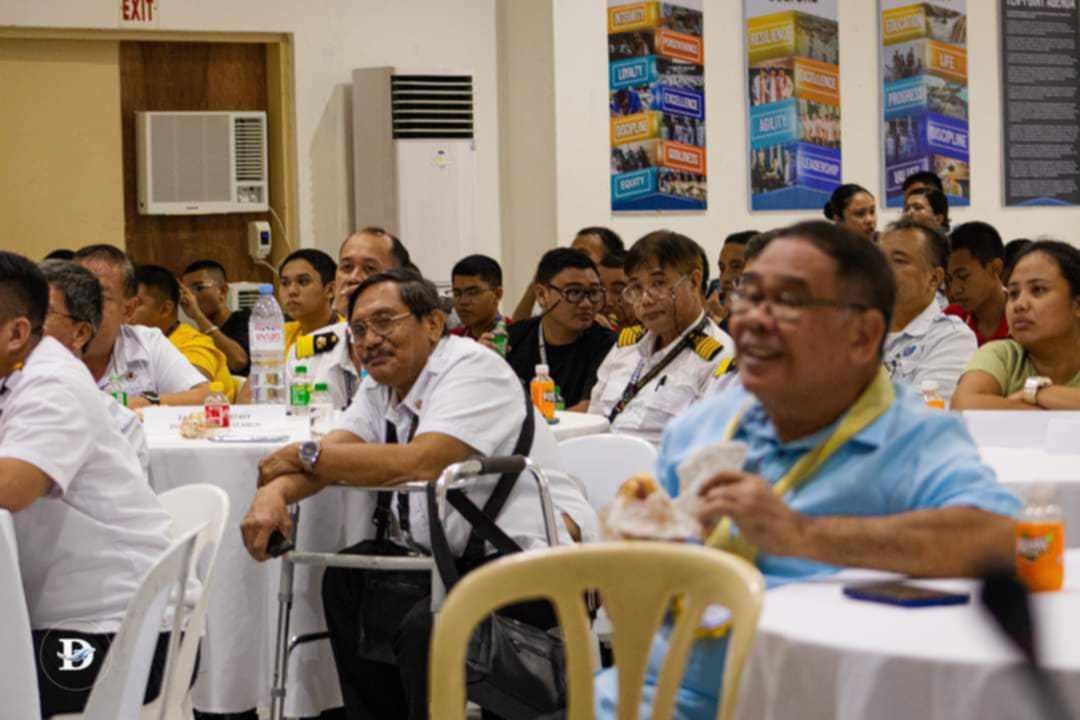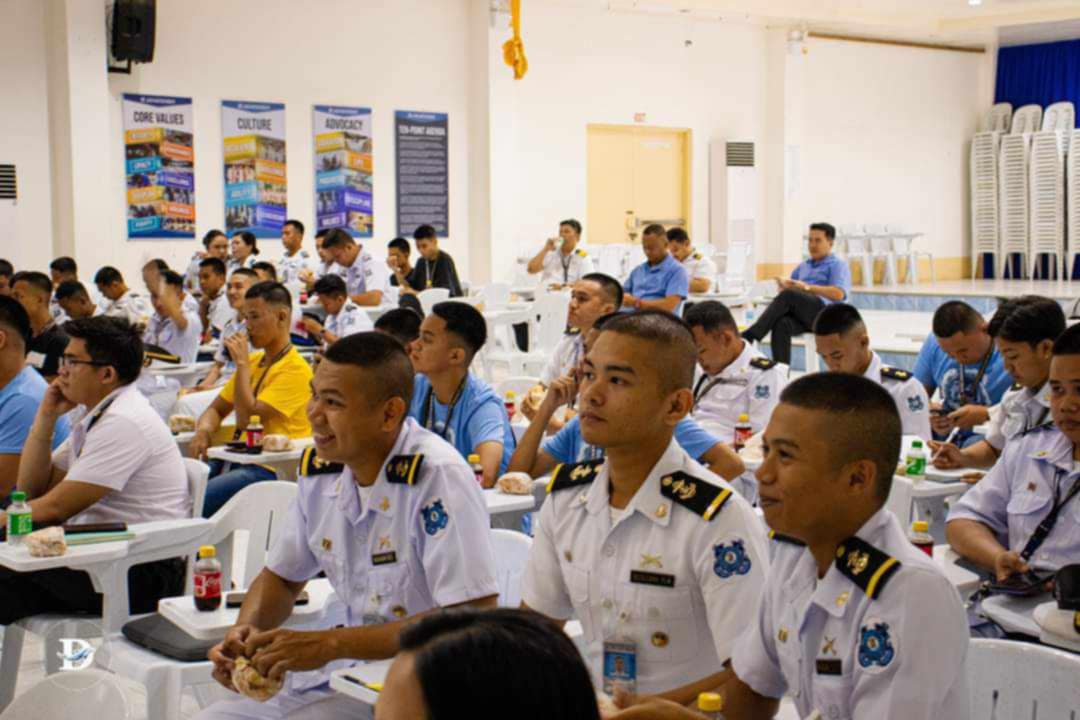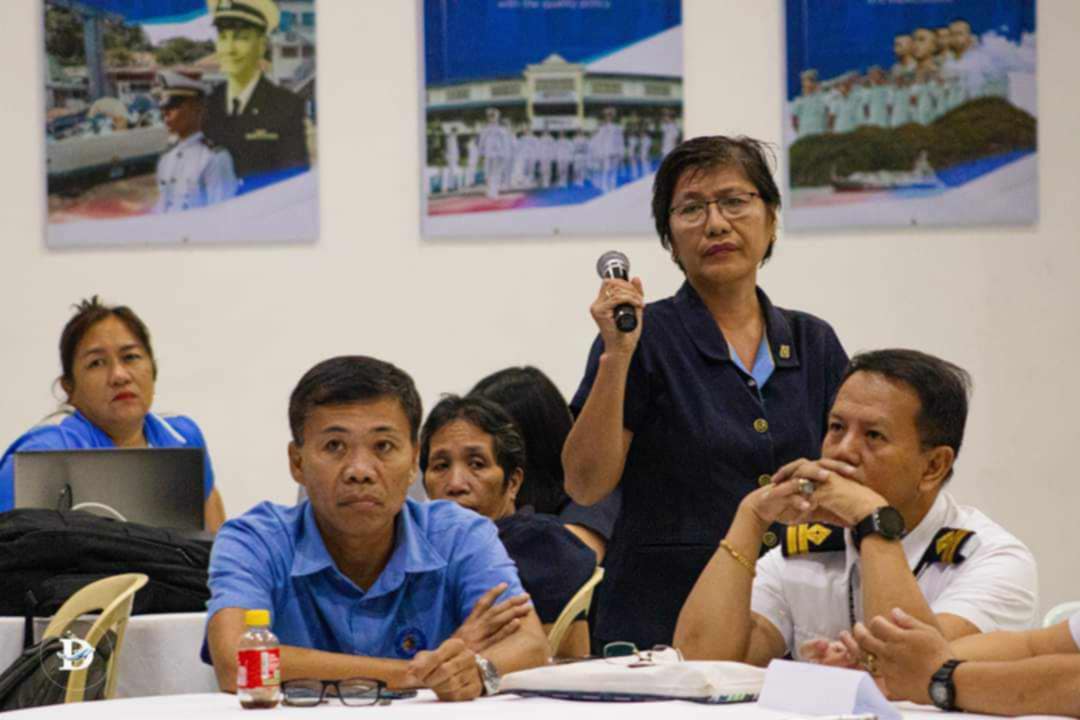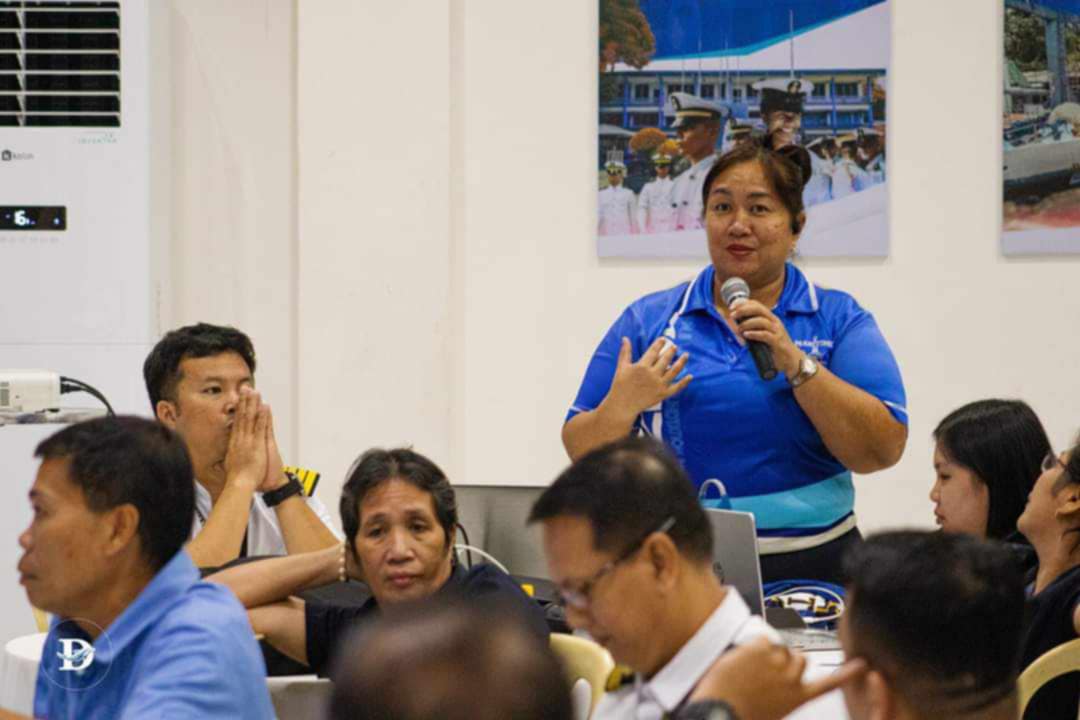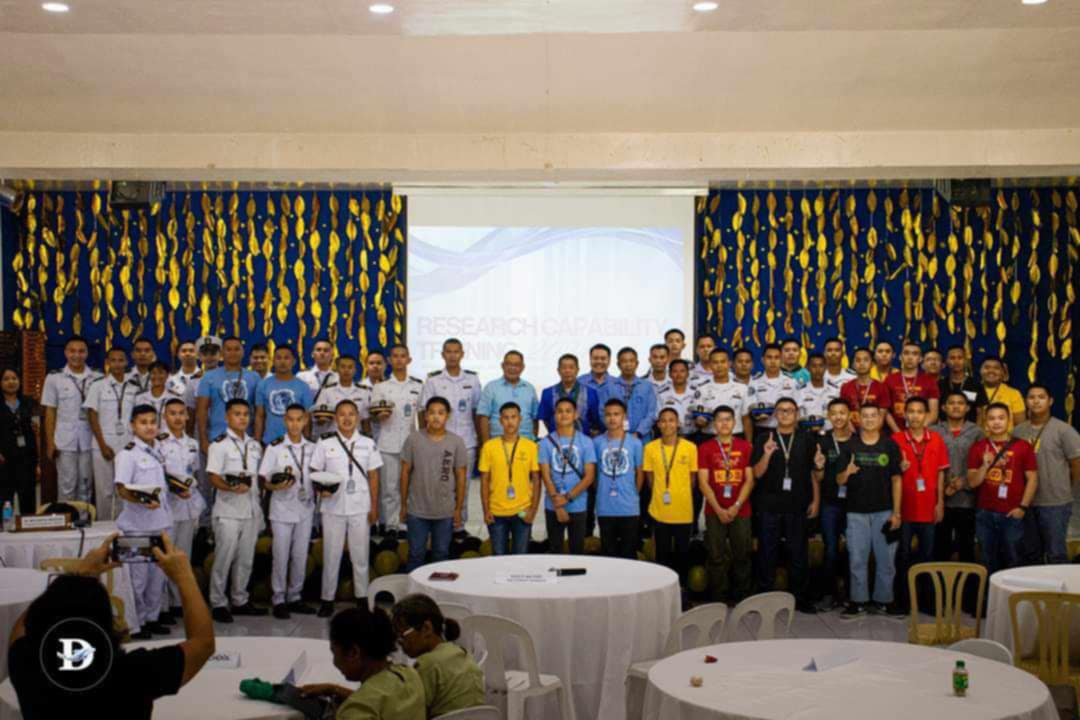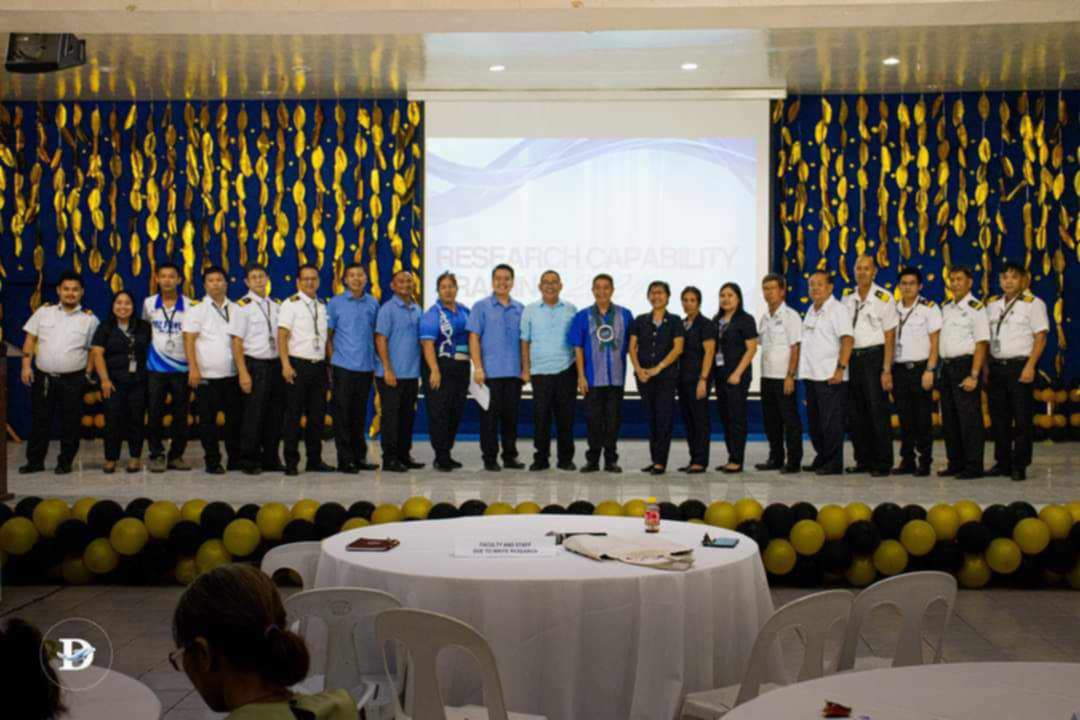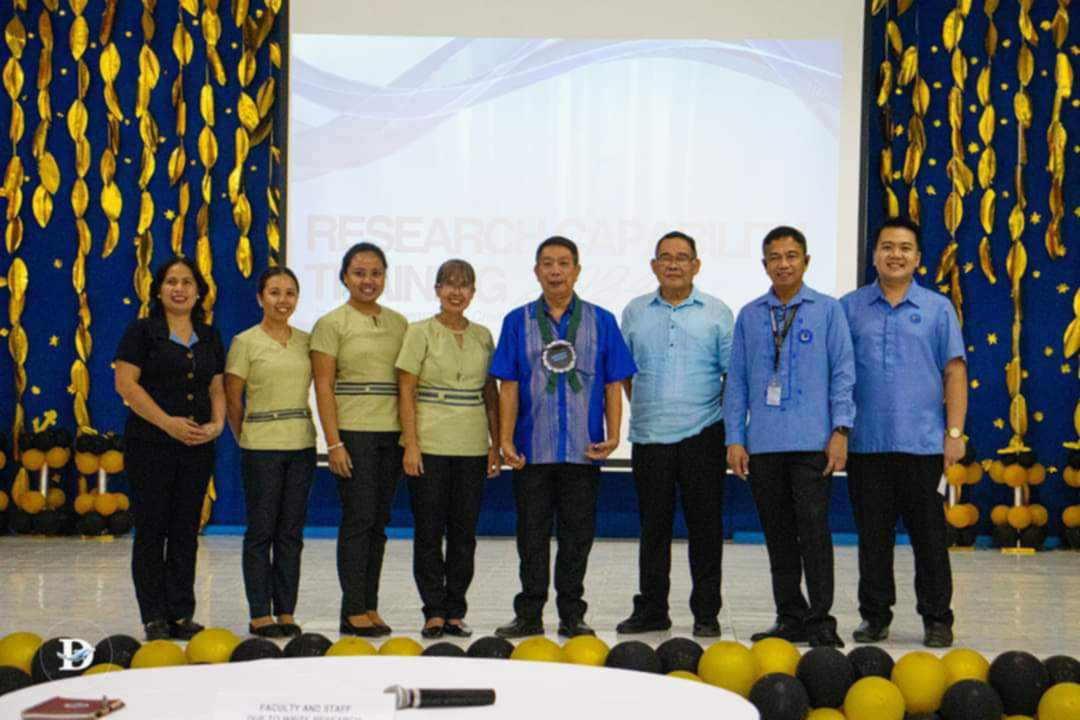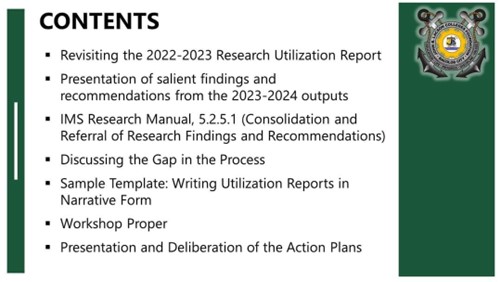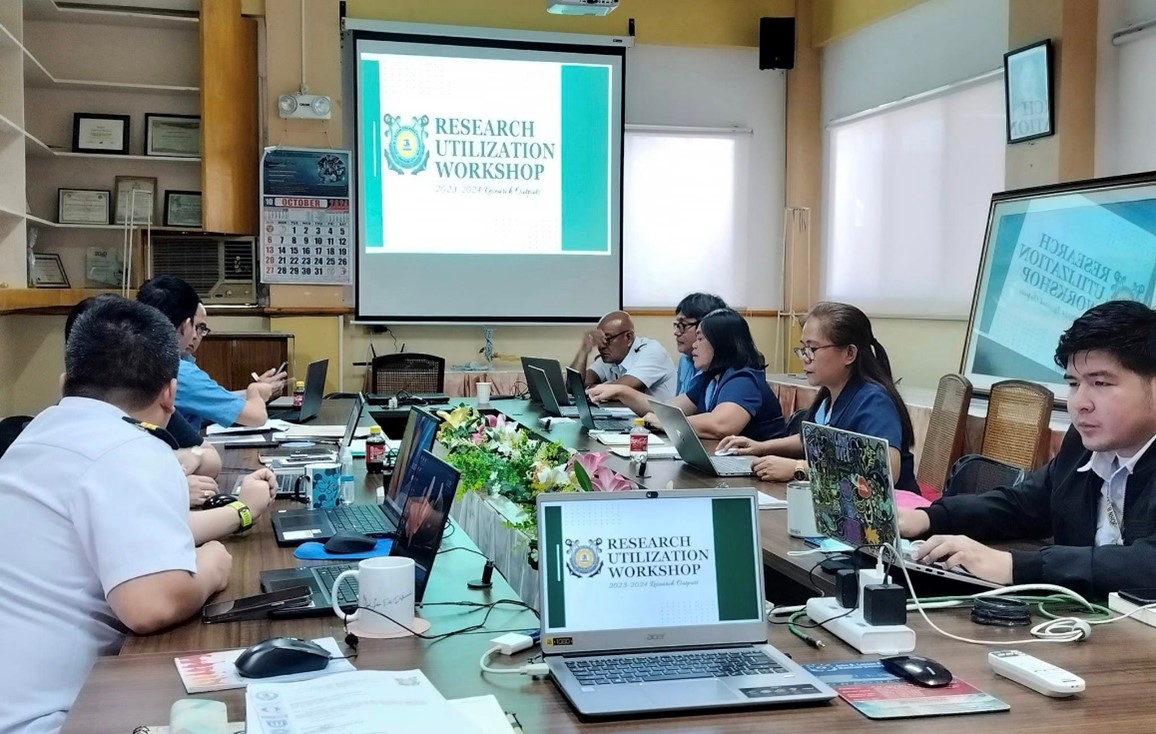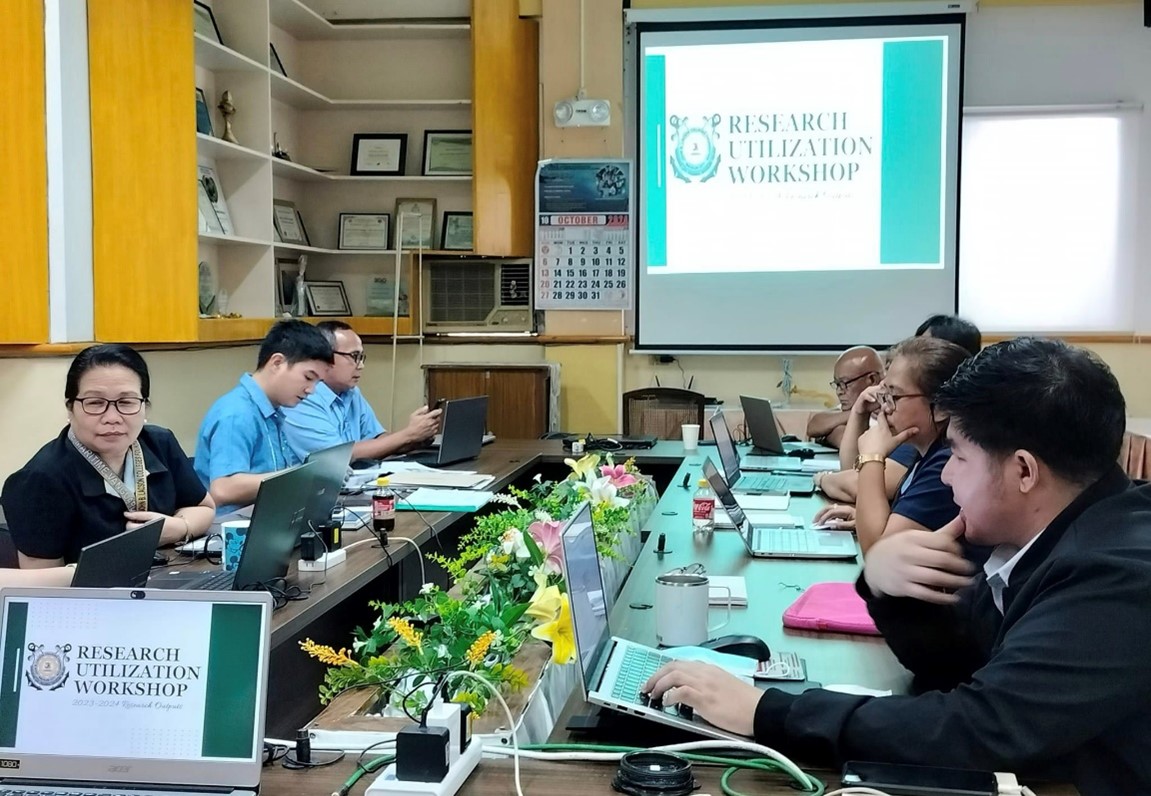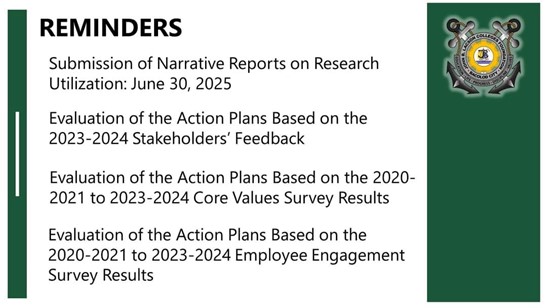I am Kirby Z. Ofianga, a classroom instruction completer pursuing a Bachelor of Science in Marine Transportation at John B. Lacson Colleges Foundation – Bacolod. In this narrative, I will share my experience as a student who, despite lacking a background in presenting research papers, embraced the challenge of becoming a presenter at the IAMUS conference during the Annual General Assembly 2024 – International Association of Maritime Universities, held from October 9-12, 2024, at Massachusetts Maritime Academy.
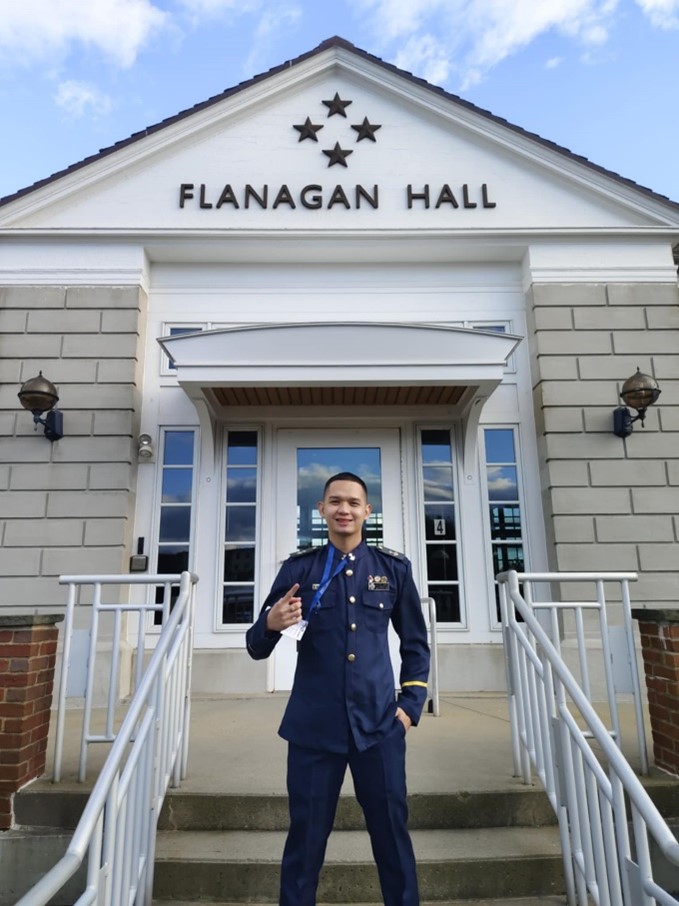
The Challenge Begins
A few months ago, prior to AGA24, my teacher asked me to submit the full paper of our research for enhancement and to create a new abstract for submission to IAMU’s team, which rigorously reviews research papers from various maritime universities worldwide. Initially hesitant about presenting if accepted, I suggested that some juniors could take on the role instead. However, my advisers encouraged me to embrace the challenge and believed in my abilities, which boosted my self-esteem and allowed me to stand proudly as I represented the institution that has shaped me over the years.
Acceptance and Preparation
A few weeks after submission, I received an email informing me that our research abstract had been accepted and that we were requested to submit the full paper. With the efforts of my research advisers—Mrs. Joanna S. Gudio, Mr. Jun C. Montaño—and the overall direction and supervision of our school’s Research Coordinator, Dr. Emeliza T. Estimo, our revised full paper was submitted on time. After a few months, I was surprised and delighted to learn that our paper was accepted for oral presentation at the IAMUS conference and that we were requested to prepare a PowerPoint presentation of our findings. Upon reading the email, I told myself that this was only the beginning of the challenge I had taken.
Second Officer Nestor Herpacio Jr., our OBTO supervisor whose paper was also accepted for oral presentation at the IAMUC, partnered with me in preparing all necessary requirements to attend the conference. Although we encountered some minor issues with our visa application, we ultimately managed to resolve them by God’s grace.
Rehearsals and Refinement
By August, I was already in Manila for my company’s month-long pre-embarkation training while also preparing for my presentation. Every night, I sought advice from fellow cadets who had experience in creating research presentation scripts and knew what to expect during such events. During the fourth week of my pre-embarkation training, I submitted a formal letter to my company requesting permission to hold a general rehearsal back in Bacolod in preparation for the conference; I was pleased to receive approval.
I took a flight back to Bacolod for rehearsals with my research advisers and mentors. After presenting to them, I realized I needed to put in extra effort because I felt that my presentation was not good enough at that time. After that, I returned to Manila to continue my pre-embarkation training while applying the revisions and tips I received during rehearsals to enhance my presentation.
Once my pre-embarkation training was complete, I quickly returned to Bacolod for final rehearsals with my team of mentors before presenting my paper to our institution’s CEO and some focal people who served as my second level of critics. After all the preparation, the day arrived for 2/O Herpacio and me to present our papers in front of the CEO in Iloilo City. Following the presentation, I received many questions that I wasn’t fully prepared for; however, some attendees with experience in international presentations reassured me that not all of those questions are typical at this level. I truly appreciated the tips and advice from the CEO and his team, as they helped me focus on the overall presentation rather than the minor details of my paper. One piece of advice from the CEO that I will always remember was to build connections with other maritime universities around the world for potential research collaborations during the event.
Journey to Boston
The most anticipated part is flying with the JBLFMU IAMU team to Boston. It was a tiring yet incredible experience for me as a first-time long-haul traveler. We took connecting flights from Ninoy Aquino International Airport in Manila through Incheon International Airport in South Korea before arriving at Boston Logan International Airport—a journey that took nearly a day and a half.
Upon arriving at Boston Logan International Airport on October 7, 2024, I was greeted by cold winds and new scenery. A sense of accomplishment washed over me as I realized that all my hard work had led me here—to represent our institution at the IAMUS conference as a proud Filipino delegate. We immediately boarded a bus bound for Buzzards Bay, Massachusetts. Upon arrival, we were picked up by a shuttle organized by Massachusetts Maritime Academy to take us to their campus.
Cultural Connections
When night fell, I asked some MMA freshmen responsible for registration where I could find dinner. They kindly accompanied me to their large mess hall, which was filled with diverse cuisines and desserts. After dinner, we returned to my accommodation building while engaging in interesting conversations about cultural differences between Americans and Filipinos in maritime industry contexts. One freshman shared her aspiration: “I want to become a crew member and operate the ship itself.” Despite our different cultural backgrounds, we aspiring maritime professionals shared common goals.



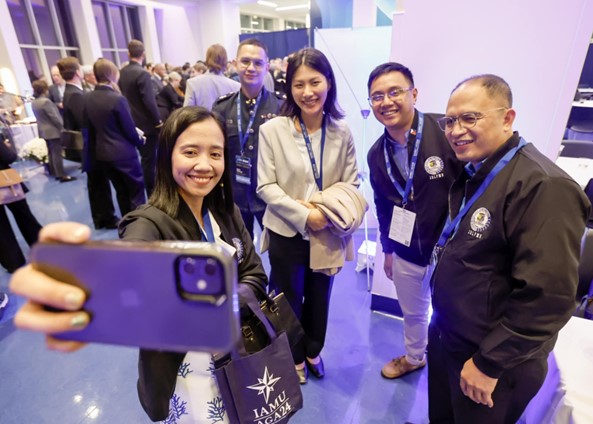
On October 8, 2024—the official first day of AGA24—delegates from various maritime universities registered and checked into their rooms. They organized a welcome reception for us to mingle and connect with fellow delegates. I introduced myself and made friends while sharing laughter and exchanging social media accounts.
During conversations about our degrees, I was surprised by how many students were pursuing master’s degrees in specializations unfamiliar to me—expanding my understanding of opportunities within maritime education beyond just Maritime Transportation and Engineering.
Presentations and Insights
Day 2 featured an opening ceremony led by Rear Admiral McDonald, President of Massachusetts Maritime Academy. Afterward, we moved on to student presentations in Flanagan Hall.
As I observed fellow presenters’ slideshows, many displayed basic layouts that lacked creativity; some presenters merely read from their scripts, which may have hindered their ability to engage effectively with their audience. The tower of apprehension that I initially felt while preparing myself for the conference slowly faded.
After lunch came an exciting tour of SSV Ernestina-Morrisey—an exhilarating experience that made me appreciate challenges faced by sailors navigating without modern engines. The day concluded with a Cape Cod harvest dinner accompanied by live acoustic music—a perfect end to an enriching day.
Presentation Day
Day 3 was particularly significant as it was my presentation day—and, coincidentally—my birthday back in the Philippines. Upon waking up, I prayed for guidance as I prepared to share months of hard work with an international audience.
Before lunchtime, we participated in a workshop on cultural differences and leadership traits—an enlightening experience given that such discussions are less common in the Philippines.
At 2:30 PM, I had my moment: it was time to present. By God’s grace, I delivered my presentation confidently and addressed all audience questions effectively. Positive feedback from attendees underscored seafarers’ health—a theme often overlooked in maritime discussions.
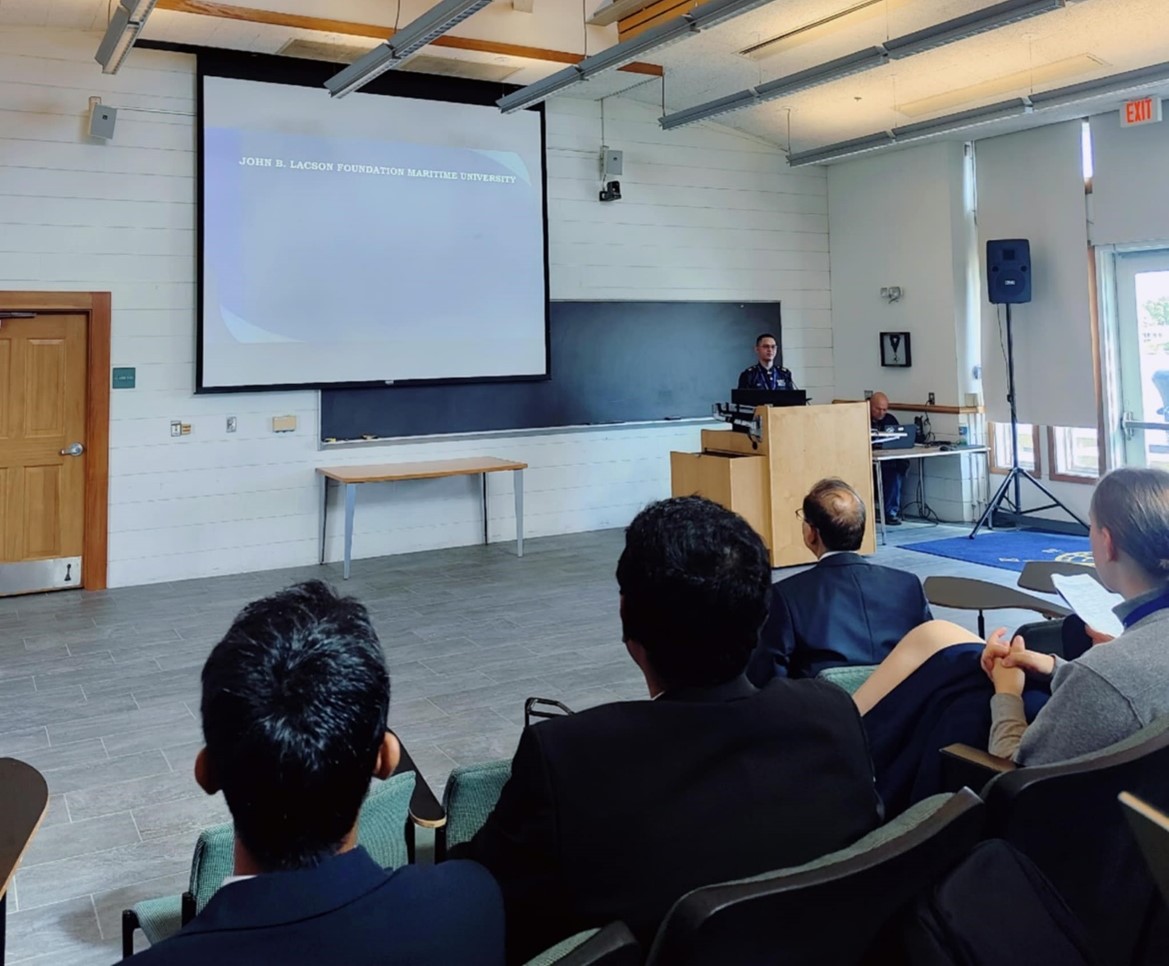
The day continued with presentations from 2/O Herpacio and Mr. Bayotas—a fellow Filipino delegate representing World Maritime University—and concluded with a closing ceremony followed by a tech trip around Boston. During this trip, we boarded a vessel exploring Boston’s historical aspects; friends gifted me their uniform headgear as a birthday token while I reciprocated with a miniature jeepney—symbolizing cultural exchange.
An Expression of Gratefulness
As this incredible experience came to an end, I reflected on how much I’ve learned about different cultures within maritime education globally. The friendships formed during this journey were invaluable. Together, we explored various maritime disciplines beyond traditional roles.

